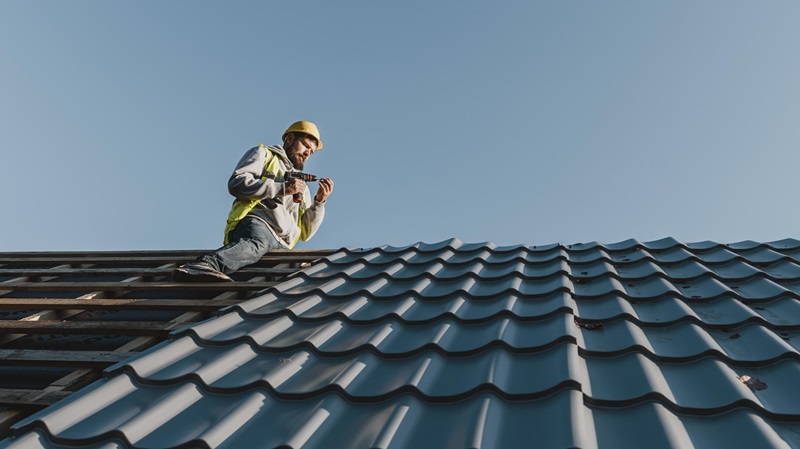Asbestos was once considered a miracle material: lightweight, durable, and fire-resistant. For decades, it was widely used across South African construction—especially in roofing. But what was once a selling point has become a source of serious concern. The health risks associated with asbestos are now well known, and strict laws govern how it may be maintained, handled, and removed. That leaves sellers, estate agents, and even buyers asking an increasingly urgent question: if your home has an asbestos roof, does it count as a defect? And are you legally obliged to disclose it when selling?
South Africa banned the use of asbestos in 2008, making it illegal to produce, import, or install asbestos-containing materials. However, many homes—particularly those built before the early 2000s—still feature asbestos roofing. While existing asbestos installations are not automatically illegal, their presence has become a legal and practical minefield for property owners, especially in transactions where full disclosure matters.
When Does Asbestos Trigger Legal Compliance?
The legal position is not just about whether a roof contains asbestos. It’s about how that asbestos is managed, what condition it’s in, and how the property is being used. This is where the Asbestos Abatement Regulations of 2020 come into play. Issued under the Occupational Health and Safety Act, these regulations impose clear duties on owners of buildings where any kind of work takes place. That includes residential homes if any part of the property is used as a workplace—think home salons, consulting rooms, studios, or even work-from-home spaces where employees or clients visit.
If your home is used as a workplace and has asbestos-containing material (ACM), you’re legally required to comply with several regulatory steps. These include identifying and documenting all asbestos materials on the property, conducting a risk assessment, compiling an asbestos inventory, and implementing a formal asbestos management plan. In such cases, failing to manage asbestos responsibly isn’t just a health risk—it’s a compliance failure that could result in regulatory action.
Even if your home isn’t used for work purposes, the presence of asbestos still carries responsibilities. Property owners are required to keep asbestos in good condition and prevent the release of fibres into the environment. If the roof is old, damaged, flaking, or deteriorating, it may pose a serious health risk to occupants or workers brought onto the property—like painters, builders, or maintenance contractors. Importantly, South African law prohibits DIY asbestos removal. Only registered asbestos contractors may handle removal, abatement, or disposal, and they must do so in line with detailed legal requirements. Non-compliance—whether through ignorance or cost-saving—can result in steep fines, environmental violations, and even criminal prosecution.

Is an Asbestos Roof a Defect That Must Be Disclosed?
Legally speaking, an asbestos roof is not considered a defect under South African property law. The material, while banned for new use since 2008, is still permitted where it already exists—provided it is stable, undamaged, and properly maintained. Its mere presence does not constitute a flaw or shortcoming in the property’s structure, and sellers are not required to highlight it as a latent defect in disclosure documents.
However, that doesn’t mean the issue should be ignored. If a buyer asks directly about the roofing material, the seller must answer honestly. Concealing the presence of asbestos—especially if it’s deteriorating—can still open the door to claims of misrepresentation. But from a legal standpoint, a roof made from intact asbestos cement sheets does not need to be flagged as defective, and no certificate is required by the conveyancer to attend to transfer.
The only circumstance where formal compliance is legally triggered is when the property is used—partially or fully—as a place of work. In that case, the owner must meet the requirements of the Asbestos Abatement Regulations, including risk assessments and an asbestos management plan. This applies even to residential homes if business activities occur onsite.
In the absence of occupational use, however, no action is required from the seller, and asbestos-related documentation is not a legal prerequisite for sale or registration.
VDM Attorneys – Property Law and Conveyancing Attorneys
At VDM Attorneys, we help property sellers take the guesswork out of disclosure. Whether you're unsure how asbestos regulations affect your home, need legal guidance on what must be disclosed, or want a second opinion on your sale agreement, our property lawyers provide practical, experience-driven advice.
Contact us to ensure your sale complies with the law—and proceeds without unnecessary risk.